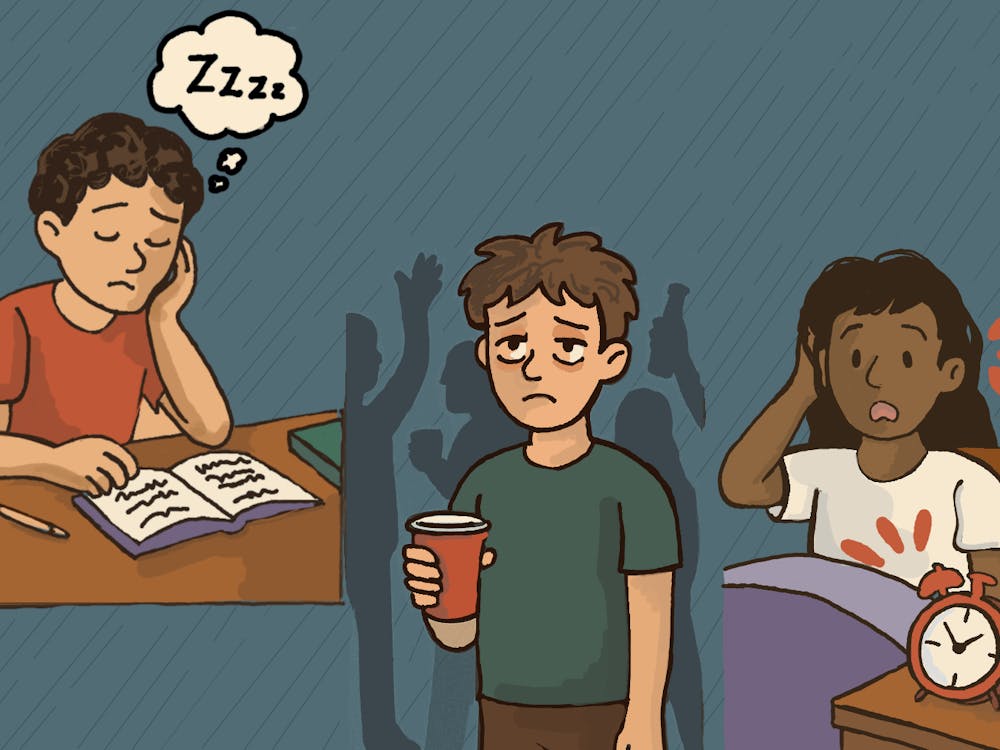“Welcome to U.Va.!”
I sat and stared at my computer screen for a moment. A professor, whom I had emailed about getting off of the waitlist for a class, had responded to my email with this three-word statement as an opener. I sat and stared, dumbfounded by the fact that I was assumed a first-year student once more, despite my email signature clearly reading in bold that I was a member of the Class of 2025.
While I wasn’t angry with this professor, per se, a small part of myself was offended — I mean, I had made it through my first year at the University, and I felt that recognition was well-earned. However, it was from that moment forward that I realized, much like that “first-time feeling,” the “first-year feeling” never really goes away.
My first year was a year full of experimentation. I tried on different personalities like clothes and rotated through majors like nobody’s business. By the time I finally settled into who I wanted to be and how I wanted to spend my time, the spring semester was over, which meant that my final round of “firsts” — times at which I would have to be the “newbie” once more — would spill into the beginning of my second year.
To give an idea of what this “final round of ‘firsts’” looked like for me, here’s a quick rundown — I tried out for the cheer team and made it, moved into my sorority house a year younger than is traditional, officially started my new major and I’m starting a new job at a law firm in a few weeks — the list goes on and is much more daunting than I would have expected or liked it to be. The worst part is that I still do feel like a first-year, utterly unprepared for everything being thrown my way, essentially feeling incompetent from every angle as I go into these new experiences.
It’s here that I realized that I am the baby. I have no idea what I’m doing. I have to be taught, because, in these instances, I will always be the “first-year.” However, I’ve come to terms with the fact that being a first-year isn’t always a bad thing — it means that I’m challenging myself to try new things that are hard and out of my comfort zone, which is honestly okay. This point — I’ve realized — is something for all of us to strive towards. If you’re not at least a little uncomfortable — in a good way, of course — or not pushed to your limits at least slightly, you aren’t giving yourself the opportunity to have new experiences and to learn from them, successful or not.
In this way, there is absolutely nothing wrong — and I know I’m saying this to a bunch of University students — with not being the most knowledgeable or experienced person in the room. That simply means you have the chance to cultivate new knowledge in a new environment, which is how we become both better students and better people.
I suppose you could call the “first-year feeling” a metaphor. As much as it bruises my ego each time my roomates call me one of the “babies” of the house, my coach calls me a first-year or my professors assume that I’m new to the University, I know that those things are a product of me trying something new or going outside of my comfort zone. When you’re challenging yourself to try new things and really putting yourself out there, you may always be the “newbie,” but you’ll also be learning and growing.
So, embrace that “first-year feeling.” Don’t shy away from it. If you think it’s going away, I promise you that it’s not — it’s probably just taking a break until you find your next exciting challenge or adventure. That little “first-year feeling” is what is going to let you truly live, grow, learn and experience, even if you have to set aside your pride just a little bit to keep it around.







